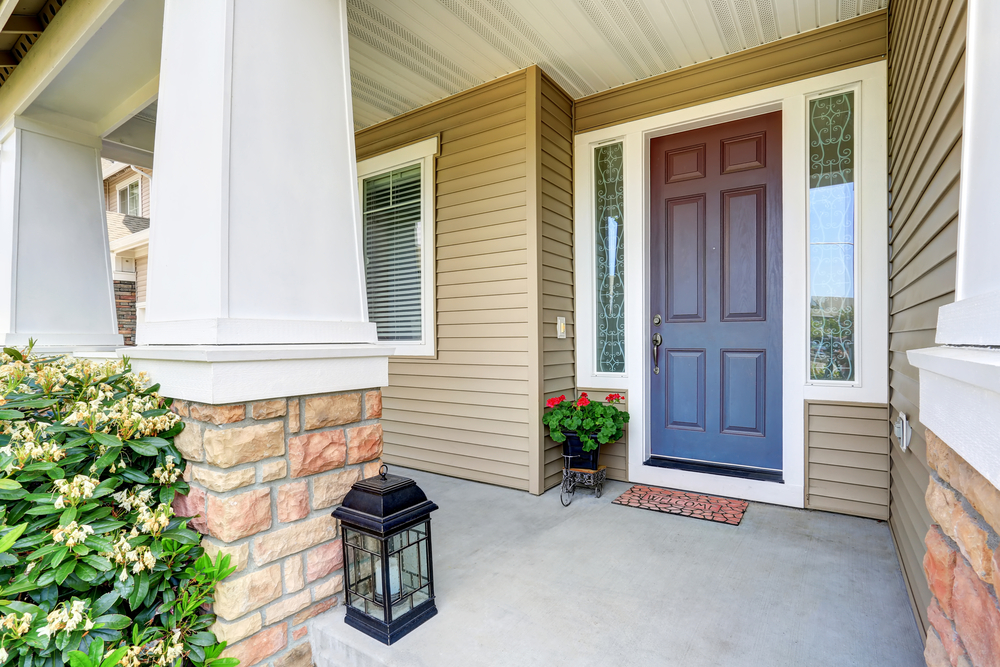
Top Factors to Consider When Choosing Your Home’s Entry Door
Choosing the right entry door for your home is more than just a matter of aesthetics. It’s a decision that impacts your home’s security, energy efficiency, and curb appeal. Whether you’re remodeling or building a new home, making the right choice can set the tone for the entire property. Here are the top factors to consider when choosing your home’s entry door.
1. Material Matters
Wood
Wood doors offer a classic and elegant appearance, making them a popular choice for many homeowners. They can be customized to fit any design preference and come in a variety of finishes. However, wood doors require regular maintenance to prevent warping, cracking, and other weather-related damage.
Steel
Steel doors are known for their durability and security. They offer excellent resistance to impact and are less susceptible to warping compared to wood. Steel doors are also energy-efficient, often featuring a foam core for better insulation. They can be painted to match your home’s style but might not offer the same aesthetic flexibility as wood.
Fiberglass
Fiberglass doors are becoming increasingly popular due to their durability and versatility. They mimic the appearance of wood but are more resistant to dents, scratches, and moisture. Fiberglass doors are also energy-efficient and require less maintenance than wood doors.
2. Security Features
When selecting an entry door, security should be a top priority. Look for doors with strong locks and reinforced frames. Steel and fiberglass doors generally offer better security compared to wood. Additionally, consider features such as multi-point locking systems and impact-resistant glass for added protection.
3. Energy Efficiency
An entry door that is not properly insulated can lead to significant energy loss. Choose doors with high energy-efficiency ratings to ensure that your home remains comfortable year-round. Look for doors with insulating cores, weatherstripping, and proper sealing to keep drafts and moisture at bay.
4. Style and Design
Your entry door is a focal point of your home’s exterior, so its style should complement the overall design of your house. Consider factors such as color, finish, and panel configuration. Traditional, modern, rustic, and contemporary styles can all be achieved with the right door. Don’t forget to match the door style with your home’s architectural design for a cohesive look.
5. Durability and Maintenance
The durability of an entry door is crucial for long-term performance. Consider how different materials hold up against the local climate. For example, in Glenwood Springs, Colorado, where the climate can be harsh with significant temperature fluctuations, choosing a door that withstands these conditions is essential. Fiberglass and steel doors generally require less maintenance compared to wood doors.
6. Size and Fit
The size and fit of your entry door are important to ensure proper installation and functionality. Measure the dimensions of your door frame accurately and consider any adjustments that might be needed for a new door. A door that doesn’t fit properly can lead to issues such as drafts, water infiltration, and difficulty in opening and closing.
7. Budget Considerations
Entry doors come in a wide range of prices depending on the material, design, and features. Set a budget that reflects your priorities, whether it’s aesthetics, security, or energy efficiency. Remember that while a higher upfront cost might be involved, investing in a quality door can lead to savings in maintenance and energy costs over time.
8. Local Climate
The climate in your area should significantly influence your choice of entry door material. In regions with extreme weather conditions, such as Glenwood Springs, Colorado, it’s important to select a door that can handle temperature fluctuations and moisture. Steel and fiberglass doors often perform well in such environments due to their resistance to weather-related damage.
9. Customization Options
Many homeowners opt for customized entry doors to achieve a unique look that fits their personal style. Custom options may include various panel designs, glass inserts, and hardware choices. While customization can increase the cost, it allows you to create a door that perfectly matches your home’s aesthetic and functional needs.
10. Professional Installation
The installation of your entry door can impact its performance and longevity. Professional installation ensures that the door is fitted correctly, minimizing the risk of issues such as air leaks and poor operation. Make sure to choose a reputable contractor who has experience with entry door installations.
Conclusion
Selecting the right entry door for your home involves careful consideration of several factors, including material, security, energy efficiency, and design. By taking into account the specific needs of your home and the local climate in places like Glenwood Springs, Colorado, you can make an informed decision that enhances your home’s beauty, safety, and energy performance. Whether you prioritize style, durability, or functionality, the perfect entry door is out there to complement your home’s unique character.
Got questions? Let us help! Contact us today to learn more about what we can do for you!
Categorised in: Exterior Doors
